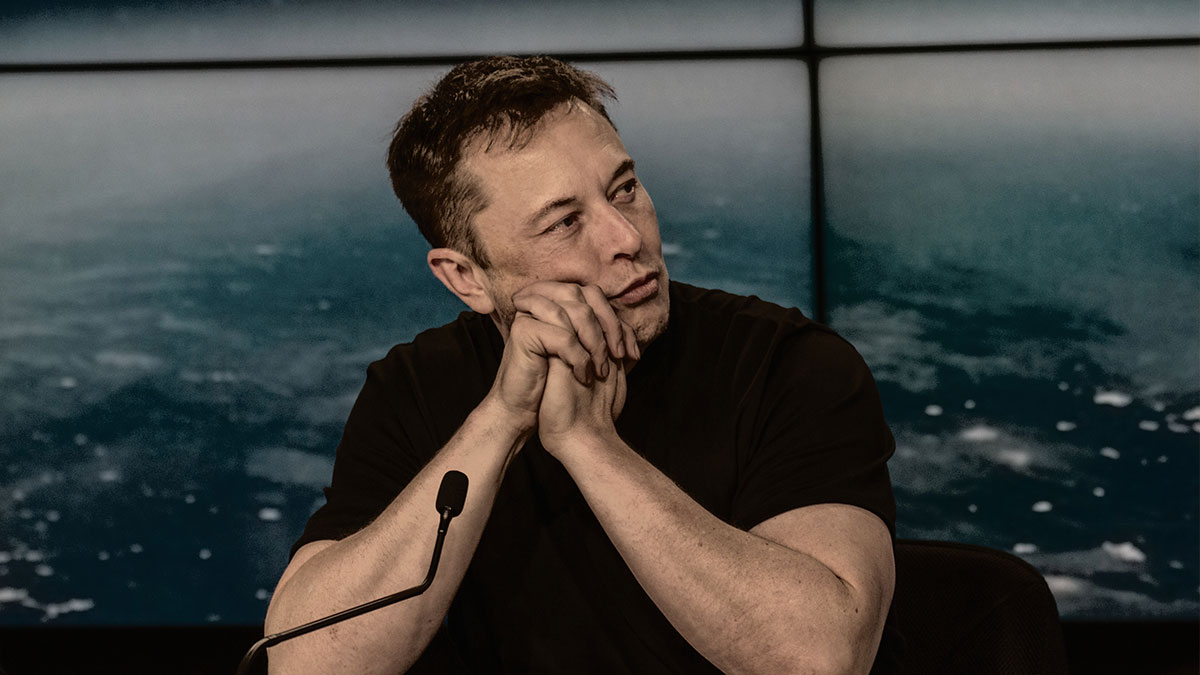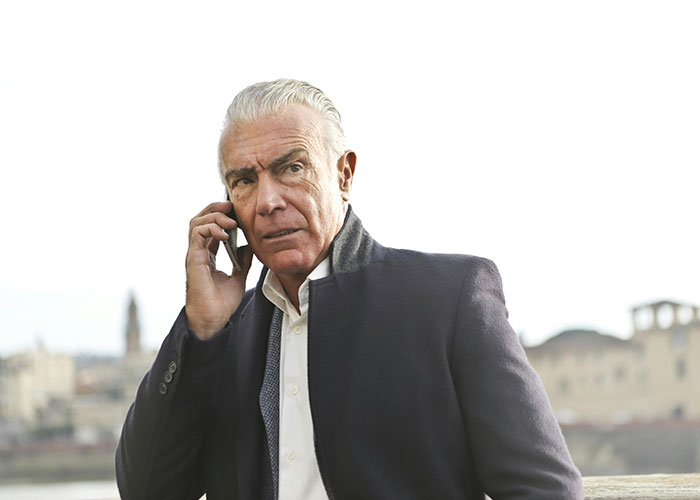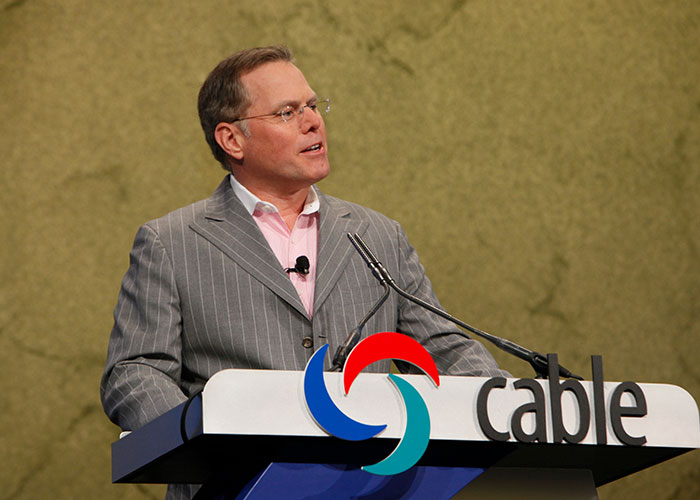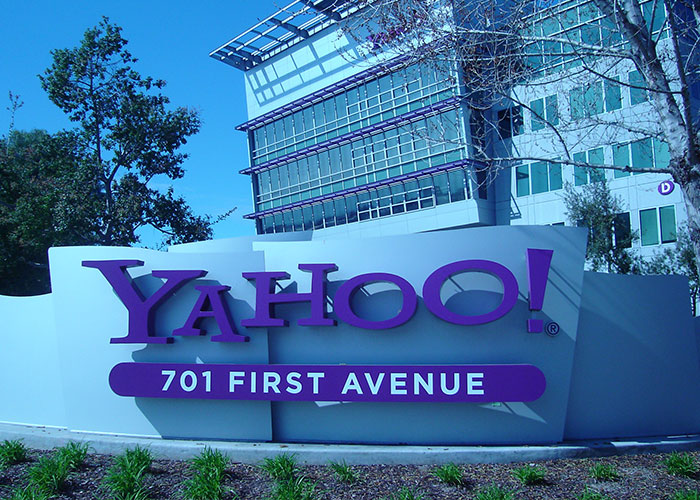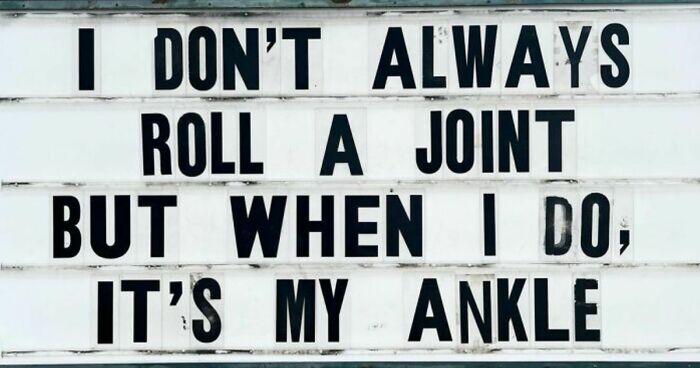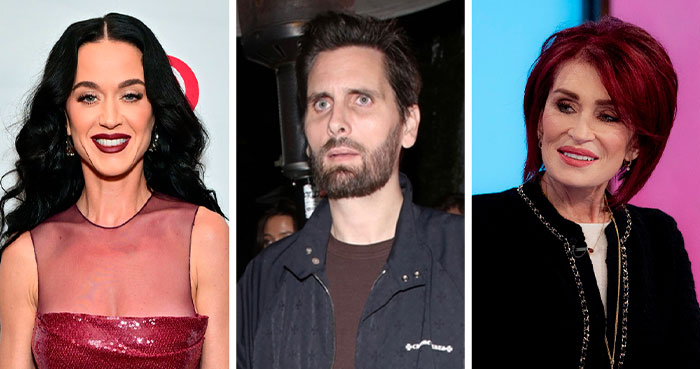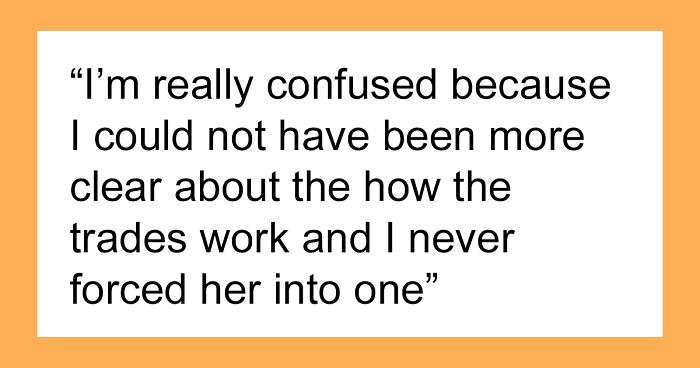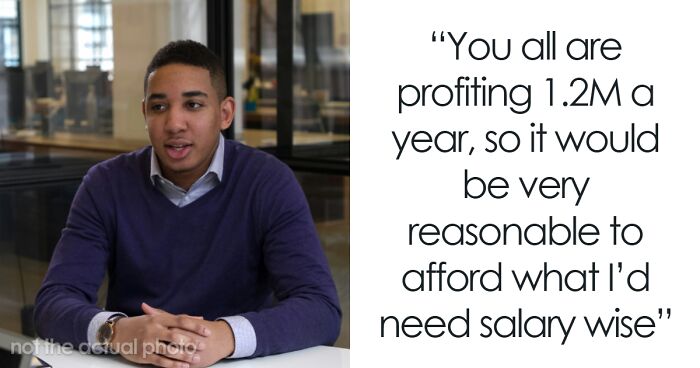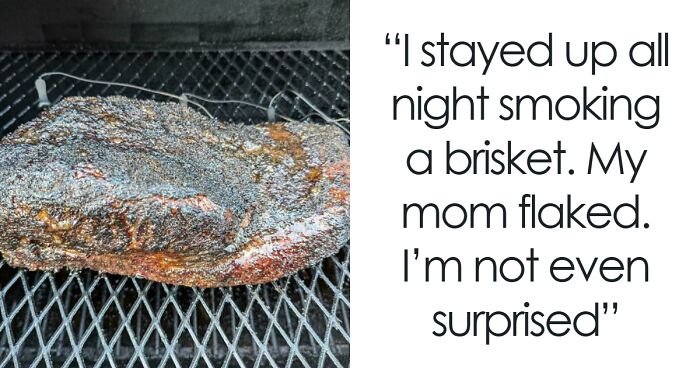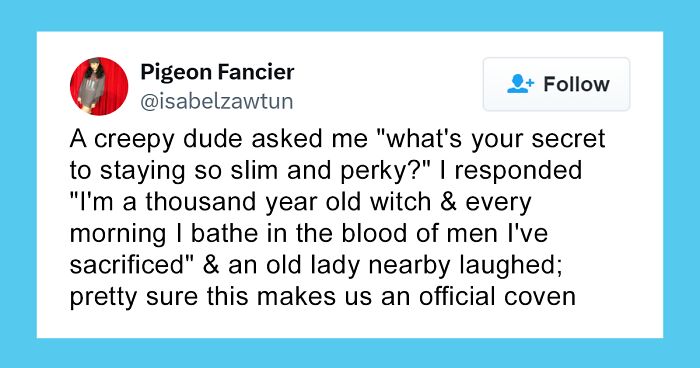Changing a company for the better requires full-on engagement from the leadership, but many of them have difficulty staying in control throughout the process.
Interested in the downfalls, Reddit user Fuzzyloulou made a post on the platform, asking everyone to share the fastest ways CEOs have ruined their organizations.
From construction and logistics to retail and tech, people quickly started listing stories from all sorts of sectors. Since the discussion has already received thousands of them, we decided to save you some valuable time and put together a list of the most memorable and polarizing ones.
This post may include affiliate links.

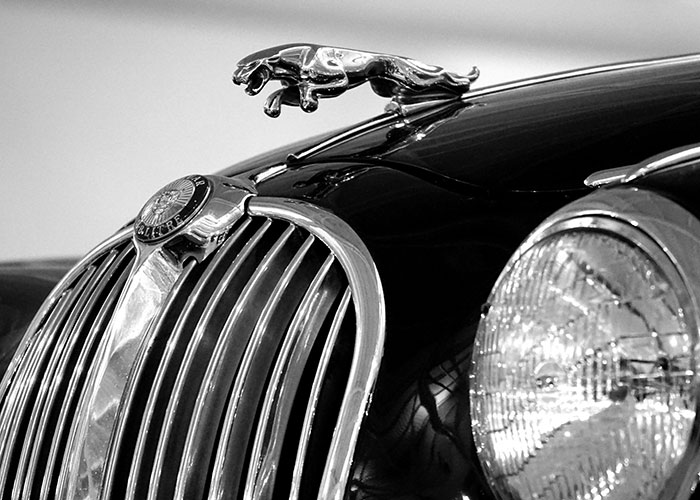 Jaguar in recent days: Why pander to an audience who don’t drive and can’t even afford the product?
Jaguar in recent days: Why pander to an audience who don’t drive and can’t even afford the product?
Well said. It's such a shame that they have turned their backs on the very features which made the brand iconic.
 Sears paid Amazon to make their website.
Sears paid Amazon to make their website.
Amazon finishes.
Sears execs say it's pointless. Internet is a fad.
They give their blessings to Amazon to use the website.
How's Sears doing?
The irony Sears going out of business because it couldn't adapt to online shopping...
Herman Vantrappen, managing director of strategic advisory firm Akordeon, and Frederic Wirtz, who heads The Little Group, advising companies on organization design issues, say that when they've observed leaders' inability to remain fully in control, their weaknesses usually reflect one of four characteristics: half-heartedness, appeasement, indecisiveness, or incapacitation.
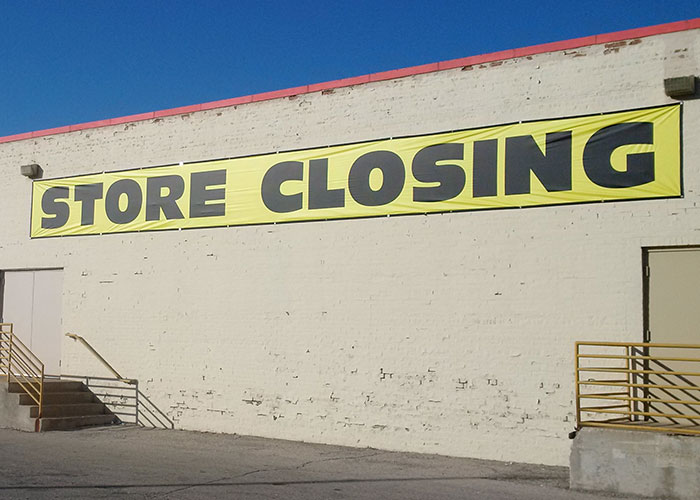 Eddie Lampert at Sears. It took him a few years to do it, but he managed to destroy two 100 year old companies. Sears and Kmart.
Eddie Lampert at Sears. It took him a few years to do it, but he managed to destroy two 100 year old companies. Sears and Kmart.
kmart here in australia is still one of the top brand :D
 Not nearly as high profile as a lot of what was posted here but:
Not nearly as high profile as a lot of what was posted here but:
A couple of years back, I works for a small, single product manufacturer who were trying to get approval for it to be used as a medicine.
6 months into my Contract (I was a contractor - this is outside the US) it was surprisingly bought out by a US based mid-sized food manufacturer.
We met our new owners and one of them shook me by the hand telling me how much we’d all be needed over the next years as the bought the product to market.
Next day they terminated my contract as ‘non-essential staff’. On the one hand I was a contractor and s**t like that can happen. One the other, f**k those guys a month before Christmas.
2 months later the site was shut down with the loss of about 60 jobs. Why? Because the idiots had no idea of the regulatory process of bringing an API (Active Pharmaceutical Product) to market.
That was easily $200 million straight down the drain.
My first startup was like this. We were offered $20 million to buy us out by a competitor. The owners didn't sell, because we were worth at least 5 times that much. Two years latter we were sold out of bankruptcy for just under $500 thousand. My options were all under water
This year has seen significant changes in CEO turnover. Career transitioning firm challenger, Gray & Christmas, reported that 622 chief executives announced their resignations in the first quarter alone—this represents a 50% increase compared to the first quarter of 2023, which was already a record year for CEO exits.
Some attribute the surge in departures to the evolving business landscape, the retirement of Baby Boomers, and increased pressure on CEOs to navigate complex issues, including inflation, supply chain disruptions, and environmental, social, and governance concerns.
In general, the median tenure of CEOs at S&P 500 companies has been on the decline, falling from six years in 2013 to 4.8 years in 2022, a 20% decrease over the period, according to executive consultancy Equilar.
 Last year our new CEO decided prices were too low. He jacked them by about 70% and customers completely stopped buying. The entire sales team (7 people) quit or was fired. I’m told the company expects to close less than 50% of the revenue it did in the previous year. Major blunder.
Last year our new CEO decided prices were too low. He jacked them by about 70% and customers completely stopped buying. The entire sales team (7 people) quit or was fired. I’m told the company expects to close less than 50% of the revenue it did in the previous year. Major blunder.
 He tried to run a nonprofit library wholesaler like a car dealership. Because he was a car dealership guy who knew f**k-all about libraries.
He tried to run a nonprofit library wholesaler like a car dealership. Because he was a car dealership guy who knew f**k-all about libraries.
Most of the senior staff retired and he fired the rest. Then implemented policies that treated us all like children, such as having to put our phones in a box at the front office when we got into work in the morning. Hired a bunch of rando high level positions who also knew f**k-all about libraries.
Then he talked some s**t about people who ‘couldn’t handle change’ because they’d quit. Refused to allow us to order inventory so libraries couldn’t get extra copies when a book unexpectedly blew up.
Anyway, I quit when I was handed a coworker’s entire job with no extra compensation (or, you know, choice in the matter) and the 60+ year old company was dead within about a year, year and a half of him becoming CEO.
While most boards of directors know what to do when their CEO screws over the company or is accused of illegal activity, things get murkier when we look at questionable actions.
To examine how corporations handle allegations of CEO misbehavior, David Larcker and Brian Tayan conducted an extensive review of news media between 2000 and 2015. They identified 38 incidents where a CEO's behavior garnered a meaningful level of media coverage (defined as more than 10 unique news references) and categorized these incidents as follows:
- 34% involved reports of a CEO lying to the board or shareholders over personal matters, such as a drunk driving offense, undisclosed criminal record, falsification of credentials, or other behavior;
- 21% involved a sexual affair or relations with a subordinate, contractor, or consultant;
- 16% involved CEOs making use of corporate funds in a manner that is questionable but not strictly illegal;
- 16% involved CEOs engaging in objectionable personal behavior or using abusive language;
- 13% involved CEOs making public statements that are offensive to customers or social groups.
 How about Chainsaw Al Dunlap. They called him Chainsaw because he’d take over a company and cut it up into pieces. He took over Sunbeam and bankrupted it in an elaborate accounting scandal. He’s on the list of worst CEO’s of all time. Look him up. It’s an interesting read.
How about Chainsaw Al Dunlap. They called him Chainsaw because he’d take over a company and cut it up into pieces. He took over Sunbeam and bankrupted it in an elaborate accounting scandal. He’s on the list of worst CEO’s of all time. Look him up. It’s an interesting read.
Knowing corporate america, he probably has a bunch of opportunities to choose from................
 Just saw on the news a Texas logistics company CFO was sentenced to 51 months in prison for wire fraud for transferring company funds to his bank account and destroying the company causing it to shut down and lay everyone off.
Just saw on the news a Texas logistics company CFO was sentenced to 51 months in prison for wire fraud for transferring company funds to his bank account and destroying the company causing it to shut down and lay everyone off.
The kicker is, he was convicted of the same felony in 1994 so second time he’d done it.
sounds like the perfect candidate for a position in the incoming administration
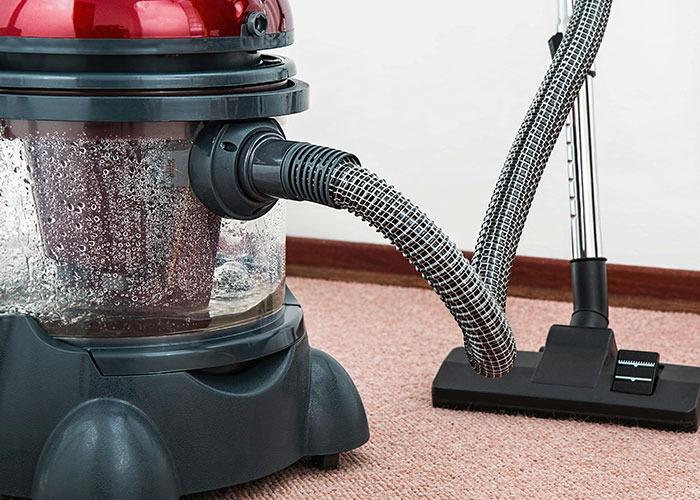 The CEO of Hoover? Decided on a ridiculous giveaway with the purchase of a new vacuum.
The CEO of Hoover? Decided on a ridiculous giveaway with the purchase of a new vacuum.
They were giving away airline tickets worth more than the price of the vacuum- everyone told him it was going to flop and cost the company millions more than the revenue it would bring in. He stuck to his guns then tried to cancel the whole thing at the last minute.
This was in 1992 in UK and if one spent 200 British pounds of Hoover stuff they would get an airline ticket worth 600 pounds.
I remember hearing about this, If I remember correctly they intended for it to be limited to airline flights within Europe. Where plane fairs are dirt cheap. However, they didn't word the Terms & Conditions that way,. As a result people were getting free transatlantic flights.
In 84% of the cases Larcker and Tayan analyzed, the company issued a press release or formal statement on the matter. In 71%, a spokesperson provided direct commentary to the press. Board members were much less likely to speak to the media, making direct comments only 37% of the time.
In over half of cases (55%), the board of directors was known to initiate an independent review or investigation. The board is most likely to announce an independent review in cases of potential financial misconduct, however, the willingness of an individual director to discuss the matter directly with the press does not appear to be associated with the type of behavior involved or the "severity" of the CEO's actions.
That guy at Blockbuster who turned down Netflix's offer.
I understand why you wouldn't want to sell a company that has been your 'baby' though. I remember when I studied visual communication & design in high school. One of the first lessons the teacher said 'don't name your first fashion line after yourself, because it will make it harder for you when you sell it' and I thought, why sell it then? I get that it is good to make money, but if it's doing well enough to get people wanting to buy it, and it's your passion, maybe that's enough. Not that it worked out for Blockbuster of course, but they didn't necessarily know how the future would go. Hindsight is always 20/20.
 The most classic example is a guy called Gerald Ratner who was ceo of his family’s jewellery business
The most classic example is a guy called Gerald Ratner who was ceo of his family’s jewellery business
The shops and products were popular despite being tacky
He gave a speech in 1991 where he said:
We also do cut-glass sherry decanters complete with six glasses on a silver-plated tray that your butler can serve you drinks on, all for £4.95. People say, “How can you sell this for such a low price?”, I say, “because it’s total c**p.”
After the speech, the value of the Ratner group plummeted by around £500 million, which very nearly resulted in the group’s collapse.
 Bob Chapek’s takeover of Disney in 2019.
Bob Chapek’s takeover of Disney in 2019.
He immediately hired finance buddies into creative positions, prioritized making money via their parks, and had a *quantity over quality* approach with their movies. He had a hand green-lighting an insane amount of projects which lead to overworked staff, bad quality production, and as a result: disliked projects and failing entertainment properties (mainly Marvel).
"He's from finance! He knows how to make money!" I feel that whenever finance gets the upper hand quality loses. You start out with a good (while possibly costly) product, have a phase where quality is lost, staff is reduced, and the company lives on past laurels while increasing prices ("Look at the NUMBERS! We're finally hitting GOLD! That's what happens when you lose the déad weight!"), and finally end up with a sh!tty product more expensive than the original one - and lots of and lots of patches and built-up maintenance issues because the remaining skeleton staff has been overworked "for the duration and the good of the company - only for a little time! Keep going!"
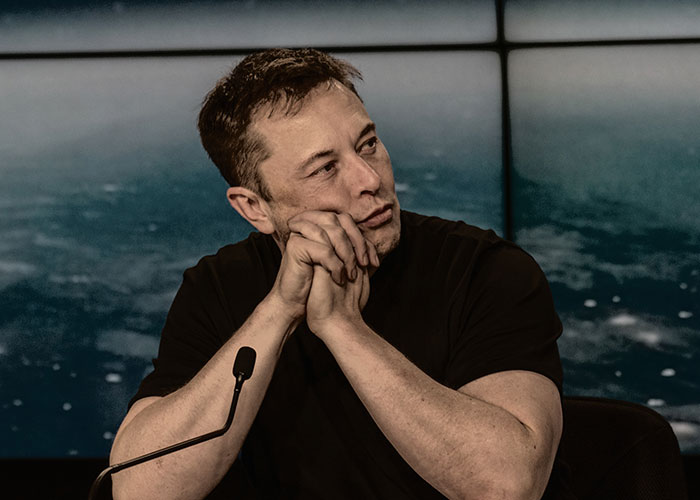 He bought Twitter.
He bought Twitter.
No-Comment-00:
Must have been one of the fasted destructions of company value. Insane, sure he and his state actor 'investors' didn't buy it solely for financial gain but also political influence, but I think Elon actually thought his changes were great 'business wise'. Instead he destroyed everything that made twitter so popular and the company profitable.
I remain convince that Elon bought Twitter for the reason of destroying it. Twitter had pi$$ed him off, so he bought it and broke it.
 Took a job at a tech startup in the 90s with the promise of fast growth and opportunity.
Took a job at a tech startup in the 90s with the promise of fast growth and opportunity.
Things really took off in the second year and we opened up several more branches in different states while I was promoted to production manager. The company hired a young CEO who was only a couple of years older than me. Sometimes he would stay at our location for a couple of weeks at a time and he started driving really nice sports cars to work. When he would leave to other cities he would leave his cars in the parking lot of our branch. There were corvettes, porsches, audis, and more.
After the second year of promising growth, the business suddenly stopped while the owners visited and yelled at the entire crew for not managing our money and told us that they were in debt by over a million dollars. We were all given the task of dismantling the equipment and preparing it to be sold and shipped before being let go.
On our last day when the building was empty we all noticed that the row of sports cars was still there and the owner had placed for sale signs on them. It turned out that they were all bought as company vehicles and the CEO had done this at each business location.
We all still were yelled at in a furious rage by this CEO and owner for not being responsible people.
That CEO who removed dislike counter on YouTube. And brought a million ads.
For me, It is Michelle Gass, former CEO of Kohl's.
Before her, Kohls was a fun place to work, everyone got along, sales were booming and black fridays were huge events.
Then she said she didn't want stores to carry large amounts of inventory, which is fair, but they overdid it. There were large empty spaces at most stores and noting in the stock rooms.
Then, came the Amazon deal. Kohls would take in Amazon returns in the hope of increasing sales. They gave every person that returned Amazon items an in-store coupon. However. People who shop Amazon don't care about Kohls. They can get it cheaper on Amazon.
Part of this deal was that Kohls used its distribution system to ship Amazon packages back to amazon.... the sales didn't even make up a part of the expenses.
Amazon, really won that one.
Then, during covid, she cut 90% of the loss prevention staff. Which, you guessed it, resulted in record inventory losses. It wasn't unheard of for 10% inventory losses compared to sales. I had a few stores that hit over a million dollars in lost inventory.
What did they do with the remaining Loss prevention staff? They made them door greeters. Which resulted in people leaving the company.
Then, throughout covid, Kohls was one of those companies that should have profited massively. They had a large distribution chain and online sales. Yet. They closed down store ability for online sales and only used specific stores.
Kohls is now in the beginning stages of becoming Sears.
I was wondering what happened to Kohls! It used to be great but I stopped shopping there because there was nothing decent anymore.
Segway brought in a new CEO who promptly decimated the stock value when he died riding a Segway off a cliff.
 Not CEO but President and especially Vice president of the company.
Not CEO but President and especially Vice president of the company.
BIG MOTOR.
President of the company placed his son as vice president and profits skyrocketed, but only because as it turned out, new vice president forced dealerships to commit insurance fraud, regular fraud, abused and humiliated the staff, killed all the plant life around dealership. After it got out, reputation of the company was completely destroyed, despite them being the biggest and most trusted dealership before that.
Funny story was that the wife and I were in the market for a new(to us) car and were on our way to Big Motor. We turned into the lot we thought was Big Motor, but was actually the dealer beside them that we never noticed before. We got a good deal on the car we wanted, then the next day the news of Big Motor dropped. The gods were looking out for us on that botched turn XD
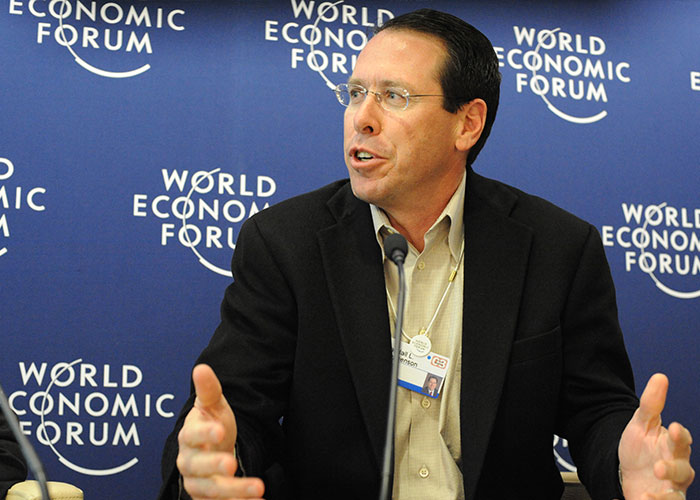 Randall Stephenson: AT&T
Randall Stephenson: AT&T
He bought DirectTV and Warner Brothers (including DC Comics, CNN, HBO and so on) for only $175B dollars between 2015 and 2018. When everyone was moving to stream services, he thought it was a good idea to buy a cable company that was losing customers by millions and a struggling media company.
Me and thousands of people lost their job because of it. Including Randall, with a $64 million retirement package.
The guy that ran a lottery on a live stream, then didn't give the winner a PC because he said she had too few subscribes.
ShawnyMcKnight:
Had to look up the company; Artesian Builds.
It’s crazy how in a promotion to improve your reach you absolutely destroyed it. If they set the rules up front that you had to have X number of subscribers no one would care, it makes sense. They want people with influence to use their product. Crazy how badly they shot themselves in the foot.
And by they you mean the idiot CEO. He had a profitable business, two locations and he blew everything because he needed to stroke his own ego on live stream.
 A construction company near me was pulling $100-$200 million in revenue every year and growing constantly, then the owner died and his fratbro failson was handed the reins.
A construction company near me was pulling $100-$200 million in revenue every year and growing constantly, then the owner died and his fratbro failson was handed the reins.
Within a month a quarter the employees had either been fired or quit. After four months the rental companies were showing up and repoing lifts and cranes/carrydecks in the middle of the day because they weren't being paid. Almost 3/4ths of the employees had quit by this point because paychecks kept bouncing. Before six months had passed, what was left was sold for a pittance to another company that just wanted what was left of the maintenance contracts.
So like six months to bomb the company he'd been groomed to take over since he was a teenager to rubble and p**s on the ashes.
There was the whole Walgreens theranos debacle. Fun fact: the ceo who basically ruined Walgreens became the CEO of Joann Fabrics and basically drove them into bankruptcy too.
I had NO idea Rite Aid (RIP) was a sub of Walgreens. Odd you would try to cannibalize your own customer base. Waiting to see if the Dollar stores suffer the same fate. Explosive growth, one in every small town.
 A CIO came in and started his tenure off with telling everyone his second week there on a Friday that starting Monday, there was absolutely no wfh. Nada. Zilch. No excuses. HR got involved and made it even clearer.
A CIO came in and started his tenure off with telling everyone his second week there on a Friday that starting Monday, there was absolutely no wfh. Nada. Zilch. No excuses. HR got involved and made it even clearer.
This was before Covid and it was wfh 3 days/week. Some people had moved 2+ hours away, would come in to town Monday morning, stay the night, work Tuesday, and go home to work until the next Monday.
Well in IT it’s not very prudent to not have your guys be able to hop on to fix a problem. So the CIO would try to make the exemption in special cases and no one would budge. So the few times some people went in, a 10m fix would run them 3-4 hours.
This CIO also had a knack of yelling at people in public and just being a huge dumbfuck and not knowledgeable about anything. He took a 15 year secretary and made her an enterprise backend developer… that she never wanted. He took an amazing developer and assigned them to 1 of 58 sites for a pet project where we could start pulling data without the site’s permission. The site told them to f**k off when they realized what was going on after a few months. The thinly spread developer led to a site getting hacked and held for ransom, literally.
And that’s just before I left. In 2 years the place had a 50%+ turnover. The old timers who wrote the old a*s code keeping the place running took early retirement. Middle careers like myself f****d off. Everyone else was just new looking for experience or holding on for early retirement. The place cratered.
From some colleagues who stayed I heard people were often crying in the hallways. They had to hire a moral boosting position that did jack s**t. Federal requirements were falling through left and right and the agency was getting sanctioned repeatedly.
Eventually the board wiped out the entire top brass of about 10 people (in a 200 person agency). But the damage was done and to this day s**t still hasn’t recovered. I know people who took 40k pay cuts for other jobs just to get tf out of that place.
 My personal experience was a new manager that stopped all overtime. I was trying to keep customers happy and he was not for it. The overtime is an indication that we needed more people. He couldn't see it. I left and they folded.
My personal experience was a new manager that stopped all overtime. I was trying to keep customers happy and he was not for it. The overtime is an indication that we needed more people. He couldn't see it. I left and they folded.
"We need either more people or more time!" - "Naw, both takes money. We don't want that! Need to improve our balances!" Dude, your managing of balances is losing you quality and in the end costing you more than it gains you, because customers will LEAVE. But of course that's not management's concern, beause they'll leave for greener pastures after a stint of "streamlining" the company and producing hollowed ruins.
 He fired the guy who owned almost all the patents to the products the company produced.
He fired the guy who owned almost all the patents to the products the company produced.
 Good old "Big Jim"
Good old "Big Jim"
Came in on the promise to shareholders he would double the profits in less than a year. And that he did.
First: Forced "retirements" for anyone there over 15 years. Get rid of those high salaries. ( and institutionalized knowledge, but who cares about that)
Second: Cancel all capital projects. Why build out when customers are kinda forced to buy from us anyway?
Third: RTO all around! Even said in a teams meeting ( from his comfy home office of course) "If you don't like it, leave."
35% of us left. Company is barely hanging on and it's well known they are positioning themselves to get sold.
Sounds like Kinkos shooting themselves in the foot until they were bought out by FedEx.
 When the CEO of EA moved to being the CEO of Unity, and then immediately shoot himself in the foot with a 12 gauge by changing Unity's publishing policies and causing most devs to drop the engine if he wasn't fired.
When the CEO of EA moved to being the CEO of Unity, and then immediately shoot himself in the foot with a 12 gauge by changing Unity's publishing policies and causing most devs to drop the engine if he wasn't fired.
 Not a CEO situation but a district manager losing about 30 years worth of sales experience over a 1 month period.
Not a CEO situation but a district manager losing about 30 years worth of sales experience over a 1 month period.
Worked at a cell phone store, we were in a great mall and were the best in the district. The worst location was in a perceivably better mall.
The district manager decided that he was going to transfer the entire staff between the two malls. As if it wasn't the people that were the problem at the s****y location. Several of us objected to this move and we were told and I quote "if I tell you to jump, you will say how high"
One guy walked out on the spot leaving with 5 years experience. Within 3 days of the move our best guy quit the company, 8 years of experience gone. A week later I quit taking my 6 years of experience with me. About another week later the last remaining guy and the manager both quit the same day for a total of 11 years more experience.
Our original store predictably tanked and became the worst store. The "better" mall's store remained empty for a few months.
About 6 months after I passed my original store and it had closed down. I don't know if they relocated but it was no longer there. It was one of those generic we sell every carrier company.
 GoBear in Asia. The company got funded 200M euro in 5 years. Best funded company in SE Asia at the time. Got a new CEO who fired every single ~~board member~~ member of the executive team that didn't agree with him. Kept all the yessir C-level and directors. In two years, the company went down the drain and closed. At its peak, it had over 200 employees.
GoBear in Asia. The company got funded 200M euro in 5 years. Best funded company in SE Asia at the time. Got a new CEO who fired every single ~~board member~~ member of the executive team that didn't agree with him. Kept all the yessir C-level and directors. In two years, the company went down the drain and closed. At its peak, it had over 200 employees.
The best part of it, he made the company buy a money-lending business in the Philippines... that he owned. So he pocketed whatever money the company had left and then shut it down.
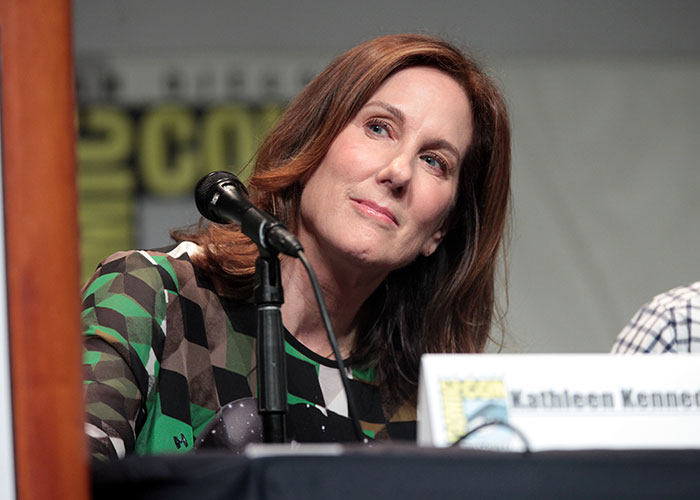 Kennedy at Lucasfilm. Only took a few years time to turn a guaranteed cash cow into a struggling brand.
Kennedy at Lucasfilm. Only took a few years time to turn a guaranteed cash cow into a struggling brand.
The CEO of Bunnings, the major hardware chain in Australia. They bought out Homebase in the UK, sacked all the existing management staff, and brought in Australians who clearly had zero understanding of the differences between the UK and Australian home improvement market. They ended up having to sell it for a token sum of 1 pound having paid hundreds of millions for it. The thing is that they had watched one of their major competitors crash and burn in Australia for trying to impose an American model onto an Australian operation, so clearly they didn't heed those lessons either
I remember this happening. Homebase is somehow still limping on.
Load More Replies...Hellofresh needs to be on here. They just got caught using undocumented migrant child laborers at their main packing warehouse. I see them either closing down, or being sold to a competitor as a result.
Always amazed at those who destroy these companies always find top jobs at other companies.
And walk away with $illion dollar exit packages.
Load More Replies...Boeing. Due to misguided focus on cost reductions, running commercial like govt contractor, firing folks over 50, offshoring IT to a company w/no aerospace expertise, etc, etc has become a basket case. Not only has commercial biz had trouble, but, space and military too.
All these examples just support the notion that there are A LOT of psychopaths in positions of power...
Years ago we got a new CEO. Got announced with lots of noise he was one of the best a company could get. Took me a week to find out he would destroy the company and I left. Why? The a$shole would NEVER took a business decision that would not lead to business for any company owned by his friends (and vice versa). 18 months later he left, 2 months later the company filed bankruptcy.
One candidate often forgotten, I think, is Ross Bicycles. A long standing maker of American bikes, they made some decent 10-speeds in the 70's, and got on the MTB bandwagon early, and began making premium quality bikes, but there was more money, apparently, in making office furniture and ammo boxes for the government, so they dedicated their US plants to that, and moved their bicycle work to Taiwanese subcontractors, too late to get the kind of good deal Specialized and the like had. The government work ended up going bad, they tried to save money by using cheap parts on the bikes, etc. Once leaders in the MTB market, with their own racing team. A later buyer of the brand did even worse. The name is still around, I think, but the Ross of old, once a competitor to Schwinn, is long gone.
I'm surprised Ubisoft isn't on the list since their CEO effed up on cosmic levels with stupid decisions and statements
The CEO of Bunnings, the major hardware chain in Australia. They bought out Homebase in the UK, sacked all the existing management staff, and brought in Australians who clearly had zero understanding of the differences between the UK and Australian home improvement market. They ended up having to sell it for a token sum of 1 pound having paid hundreds of millions for it. The thing is that they had watched one of their major competitors crash and burn in Australia for trying to impose an American model onto an Australian operation, so clearly they didn't heed those lessons either
I remember this happening. Homebase is somehow still limping on.
Load More Replies...Hellofresh needs to be on here. They just got caught using undocumented migrant child laborers at their main packing warehouse. I see them either closing down, or being sold to a competitor as a result.
Always amazed at those who destroy these companies always find top jobs at other companies.
And walk away with $illion dollar exit packages.
Load More Replies...Boeing. Due to misguided focus on cost reductions, running commercial like govt contractor, firing folks over 50, offshoring IT to a company w/no aerospace expertise, etc, etc has become a basket case. Not only has commercial biz had trouble, but, space and military too.
All these examples just support the notion that there are A LOT of psychopaths in positions of power...
Years ago we got a new CEO. Got announced with lots of noise he was one of the best a company could get. Took me a week to find out he would destroy the company and I left. Why? The a$shole would NEVER took a business decision that would not lead to business for any company owned by his friends (and vice versa). 18 months later he left, 2 months later the company filed bankruptcy.
One candidate often forgotten, I think, is Ross Bicycles. A long standing maker of American bikes, they made some decent 10-speeds in the 70's, and got on the MTB bandwagon early, and began making premium quality bikes, but there was more money, apparently, in making office furniture and ammo boxes for the government, so they dedicated their US plants to that, and moved their bicycle work to Taiwanese subcontractors, too late to get the kind of good deal Specialized and the like had. The government work ended up going bad, they tried to save money by using cheap parts on the bikes, etc. Once leaders in the MTB market, with their own racing team. A later buyer of the brand did even worse. The name is still around, I think, but the Ross of old, once a competitor to Schwinn, is long gone.
I'm surprised Ubisoft isn't on the list since their CEO effed up on cosmic levels with stupid decisions and statements

 Dark Mode
Dark Mode 

 No fees, cancel anytime
No fees, cancel anytime 


